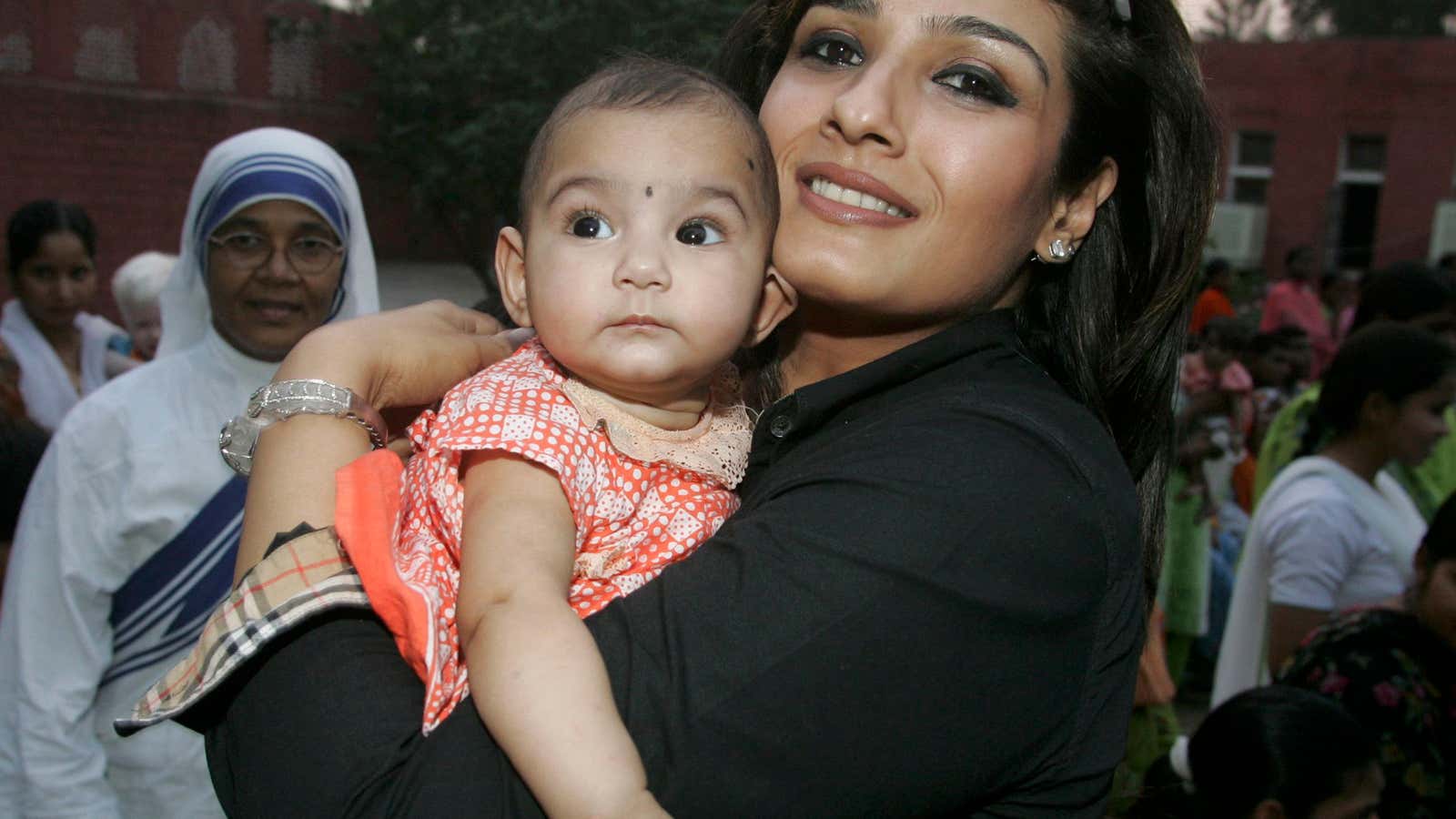The Indian government recently introduced new regulations aimed at streamlining the process of adopting children in the country, but the administrators of India’s most famous orphanages don’t agree with the changes.
The Missionaries of Charity, a Catholic organization established by Mother Teresa in 1950, has about 350 children in more than a dozen orphanages across India. Since the government announced, two months ago, that it is now allowing single and divorced individuals to register to adopt, most of the Missionaries of Charity orphanages have decided to close rather than participate in the process.
Allowing single parents to adopt goes against the Missionaries of Charity’s principles, according to the nuns in charge of its orphanages. One nun told local reporters, “What if the single parent who we give our baby [to] turns out to be gay or lesbian? What security or moral upbringing will these children get? Our rules only allow married couples to adopt.”
The nun, Sister Amala, also reportedly said: “It is not a religious rule but a human rule. Children need both parents, male and female. That is only natural, isn’t it?”
Seizing on Sister Amala’s comments, critics have accused the venerable institution of putting ideology above child welfare.
Some saw this as confirmation of the late Christopher Hitchens’s iconoclastic criticism of Mother Teresa, a beloved figure in India. Hitchens said that she was “less interested in helping the poor than in using them as an indefatigable source of wretchedness on which to fuel the expansion of her fundamentalist Roman Catholic beliefs.“
Maneka Gandhi, the head of India’s women and child development ministry, has accused the charity of opposing a “unified secular agenda.”
In an interview on NDTV, Derek O’Brien, a member of Indian parliament who is not formally affiliated with the charity, sought to defend it and clarify that “the Missionaries of Charity do not stand by those comments” made by Sister Amala. Besides, he said, “they are voluntarily giving up their adoptions. What more do you want them to do?… This is not a tactic, they are not a political party. We need to respect their decision. They are not looking for a fight.” He called Maneka Gandhi’s comments “petty grandstanding,” arguing that the charity did not challenge the government.
Legal adoption in India has been called “notoriously complex,” and reform was considered necessary to stem the increasingly common illegal sales of babies. By centralizing the process and making it mandatory for all prospective parents to register with the Central Adoption Resource Authority (CARA), the government’s ministry of women and child development hoped to streamline things and also expand the pool of eligible parents: “Any prospective adoptive parent, irrespective of his marital status and whether or not he has his own biological son or daughter, can adopt a child,” according to the new CARA rules.
Another provision in the new rules says that prospective parents must have the opportunity to consider up to six different children, across the various approved adoption agencies in the system, before selecting one to adopt.
At Mother Teresa’s orphanages, the nuns typically assess eligible families and decide which child to place with which parents.
The charity—and the Catholic church in India—is against letting prospective parents select their children. The Catholic Bishops’ Conference of India called this “unacceptable” and “tantamount to considering the children as mere commodities for preferential choice and a denial of human dignity to children.”
An estimated 50,000 children in India need homes, and fewer than 5,000 are adopted legally each year.
